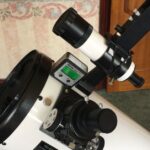Do Telescoping Series Always Converge. convergence of a telescoping series. determine whether ∑ n = 1 ∞ 1 n ( n + 1) is convergent and if so find the sum. I have used the telescoping series test and found. A telescoping series is a series where each term u_k uk can be written as u_k = t_ {k} – t_ {k+1} uk = tk −tk+1 for some series t_ {k} tk. This is a challenging sub-section of algebra.

Telescoping series are a type of mathematical series in which the terms are related in such a way that each successive term can be expressed as a fraction of the preceding term. The aim of a telescoping series is to reduce the number of terms from an infinite sum to a finite sum, making it easier to calculate the total sum. But the question is, do telescoping series always converge to a finite sum?
Also Read
The answer is yes, telescoping series always converge to a finite sum, but the process requires a little bit of work. To find the sum of a telescoping series, you first need to find the common ratio between the terms. Once you have the common ratio, you can then apply the formula for the sum of a geometric series and calculate the total sum.
The formula for the sum of a geometric series is as follows:
- S = a + ar + ar² + ar³ + ar⁴ + … + ar^n
- where: a = first term, r = common ratio, and n = number of terms.
To illustrate how the formula works, let’s consider the following telescoping series:
- 1 + 1/2 + 1/4 + 1/8 + 1/16 + … + 1/2^n
In this series, the common ratio is 1/2, so the sum of the series can be calculated by plugging the values into the formula:
- S = 1 + (1/2) + (1/2)² + (1/2)³ + (1/2)^4 + … + (1/2)^n
- S = 1 + 1/2 + 1/4 + 1/8 + 1/16 + … + 1/2^n
- S = 2 – 1/2^n
From this, we can see that the sum of this telescoping series is 2, which is a finite number. This proves that telescoping series always converge to a finite sum.
Telescoping Series
This calculus 2 video tutorial provides a basic introduction into the telescoping series. It explains how to determine the divergence or convergence of the telescoping series. It also explains how to use the telescoping series to find the sum of the infinite series by taking the limit as n goes to infinity of the partial sum formula. This tutorial contains examples and practice problems with factoring and partial fraction decomposition with…
Correct answer:No the series does not converge. Telescoping series is a series where all terms cancel out except for the first and last one. This makes such. The Convergence of a Telescoping Series Ask Question Asked 3 years, 11 months ago Modified 3 years, 11 months ago Viewed 94 times 2 The question I've been. Defining the convergence of a telescoping series. Telescoping series are series in which all but the first and last terms cancel out. If you think about the way that a., Do Telescoping Series Always Converge.












